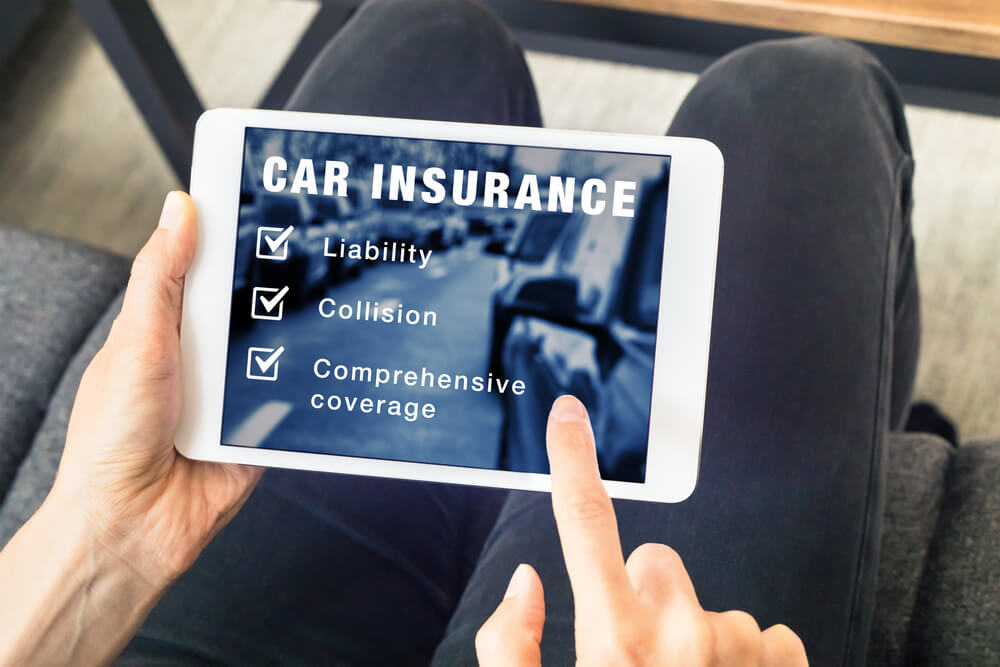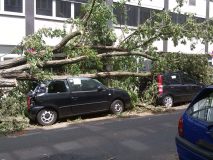What Is Full Coverage Auto Insurance?
Let’s get this first part straight: when you call the average auto insurance company, they won’t understand what you mean when you say that you want to purchase “full coverage auto insurance.”
What most people really mean by this statement is that they want the maximum amount of liability protection they can get. For most personal auto policies, there will probably be a limit set by the underwriter, beyond which you would need to consider something like an umbrella policy instead.
So, just what is full coverage auto insurance, anyway? Here’s what Peach State drivers need to know!
The True Definition of Full Coverage
To better understand the true definition of “full coverage car insurance,” you should first understand what Georgia requires and what is optional. Georgia requires you to obtain minimum protection of $25,000 per person and $50,000 per accident bodily injury liability, as well as $25,000 in property damage liability coverage. (Also known as 25/50/25).
If you want “full coverage,” you might be thinking of optional upgrades to your policy, including collision, which pays for repairs to your own vehicle after an accident, comprehensive to give you protection against theft, fire, and things like vandalism, and other options.
Common Misconceptions About Full Coverage
Here’s the most common misconception: “Full coverage” generally means a combination of the above options, specifically liability, collision, and comprehensive. However, it is important to understand that even with “full coverage,” some expenses may not be covered, such as specific exclusions or nonstandard equipment.
What Does Full Coverage Car Insurance Include?
So, what types of car insurance coverage are out there? As stated previously, if you want the maximum protection available while you’re cruising down the highway to Savannah for your scenic summer vacation, you’re going to want the following in your package:
- Liability: Protects you from injuries you cause others in an accident, as well as legal costs. Includes both bodily and property liability.
- Collision: Pays for repairs or replacement of your own vehicle.
- Comprehensive: Protects you against a variety of not-so-peachy situations, including vandalism, fire, flood, hail, and rogue animals.
- Uninsured/Underinsured Motorist (UM/UIM): If you get into an accident with a driver without insurance, this pays for what you can’t collect from them in a lawsuit.
- Medical Payments/Personal Injury Protection: Covers medical expenses, lost wages, and other related expenses (like childcare) if you or your passengers are injured.
- Rental Car Reimbursement: Covers the cost of renting a car if your vehicle is in the shop due to a covered claim.
- Roadside Assistance: Provides services such as towing, battery jump-starts, flat tire changes, and lockout services.
- Gap Insurance: Pays the difference between what you owe on a financed or leased car and the vehicle’s actual cash value if it’s totaled.
A Closer Look at Comprehensive and Collision Coverage
Full coverage auto insurance covers a lot of things, including comprehensive and collision. Here’s a closer at both comprehensive and collision for your auto policy:
Comprehensive is for all the weird stuff: Think deer jumping out, tree branches falling, or your car getting stolen (you know, the unexpected!). These are just a few of the reasons you might need comprehensive auto protection in Georgia.
Collision is for accidents like bumping into another car or hitting a mailbox. Each option comes with a deductible, which is the part you pay before insurance kicks in to cover the rest.
If your car is new or worth a lot, having both makes sense — it’ll protect your ride from all kinds of trouble. But, if your vehicle is older and not worth much, you might wanna skip them to save some money. It’s all about deciding if the cost of insurance is worth it compared to your car’s value.
Unpacking Additional Protection: Uninsured Motorist, Medical Payments, and More
Georgia drivers like yourself might wonder if you really need UM/UIM protection in the state. Unfortunately, the answer is probably yes. Not every driver carries a valid policy, which means you might run into trouble if you win a judgment against another driver due to an accident and need to collect on that policy.
As for medical payments and other options, you should take a closer look at your current financial situation.

Comparing Full Coverage to Liability Only
Full coverage protects your car from accidents, theft, or natural disasters, making it ideal for new or valuable vehicles. Liability-only is cheaper and works well for older, low-value cars where repair costs might outweigh the car’s worth. The choice between them comes down to balancing cost with the level of protection you want for your vehicle and peace of mind.
Evaluating Your Need for Full Coverage
Here’s the key to figuring out if you need full coverage, and it all comes down to one simple question: Can you “self-insure?” This means, if you needed to, could you cover the loss of your vehicle, your medical payments, or the liability you’ve incurred in an accident out of your own pocket?
If you’re the kind of driver who has a summer home on the Georgia coastline while running a high-flying business in Atlanta, maybe you don’t need full protection — it’s easy enough to cover your own expenses due to an accident, even replacing your vehicle.
However, if you don’t have deep pockets, it might make sense to beef up your policy to give yourself the peace of mind you need to feel comfortable driving down Interstate 75 (a tall order even on the most calm of days, to be sure).
A good agent can also help you make this decision, so don’t forget to incorporate your agent into these deliberations to see what other drivers like you have considered!
When Full Coverage Is a Smart Investment
Full coverage is a smart investment when:
- Your Car Is New: It protects against costly repairs or replacements from accidents, theft, or natural disasters.
- Financing or Leasing Your Vehicle: If you’re financing or leasing your vehicle, full insurance is usually required to protect the lender’s investment.
- You Live on The Coast: It’s also ideal if you live in an area prone to extreme weather or high accident rates. An enhanced policy provides added peace of mind, ensuring you won’t be stuck with a huge bill after an unexpected event.
- Repair Costs Are High: If repair costs are high or you rely heavily on your car, consider this high level of insurance.
Scenarios Where You Could Skip Full Coverage
You can skip full coverage if your car’s value is low — like if it’s old and worth less than your deductible and premiums combined. Paying for an upgraded policy on a car that’s worth a couple of thousand dollars just doesn’t make much sense. If you’ve got enough savings to replace your car or cover repairs yourself, liability-only might do just fine. Folks who don’t drive much or park their vehicle in a safe spot can also consider getting a lower level of protection. It’s about saving money where it counts, especially if your ride isn’t worth the extra cost.
Get A Free Full Coverage Auto Insurance Quote
So there you have it: A bit of a long-winded answer to your question about what full coverage auto insurance is. While “full coverage” may not mean much to an underwriter, an agent will understand what you mean. A thorough discussion of your financial situation can help you figure out exactly how many ingredients you should include in the peach cobbler that is your new auto policy.
Ready to get started? We’re here to help at Velox Insurance! Give us a call today at (855) 468-3569, get a quote online, or visit your local Georgia office today to get going on your own customized plan!



